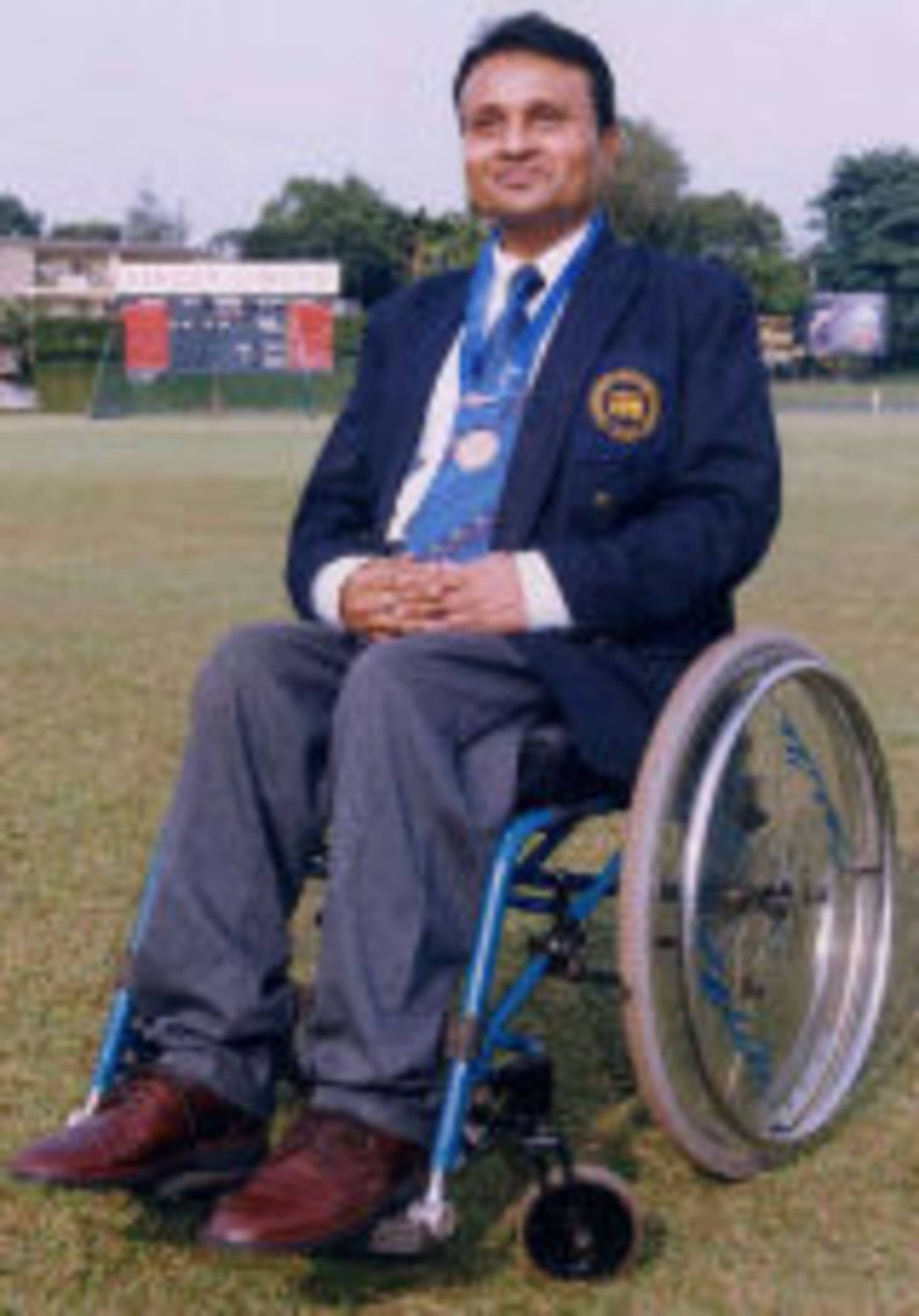Retired hurt but not out
The Ajith Perera story begins where it might have ended for him
Sriram Veera
25-Feb-2013

ESPNcricinfo Ltd
On December 12, 1992, a 35-year old Ajith Perera got the letter he had spent years waiting for. The man who became the first Sri Lankan to qualify as the professional umpire after a final exam at Lord's in 1985 was about to stand in his first Test, between Sri Lanka v New Zealand, when it happened. He read the appointment letter a few times and left the board office to get back home to share the proud moment with his parents.
He didn’t get home for the next two years. It was a stormy day and Perera was sitting in his car with the letter when nature intervened. A big wayside tree crashed against the car, killing the driver and instantly rendering Perera a paraplegic for life.
But the Perera story began where it might have ended for him. An author of two books, and a campaigner for better access in public spaces for the mobility-disabled people, and speaks without a trace of self-pity. If anything, there is an awareness of his mental strength and a pride in overcoming the greatest obstacle that had killed his biggest dream.
"Retired hurt but not out," Perera says with a crackling laugh that blows away your hesitation about bringing up the accident. It doesn't feel nice to call up someone and ask him to speak about something that you yourself would not have been talking to a stranger about had it happened to you. But Perera puts you at ease and uses the conversation to ask you to highlight his battles for public access.
Perera runs an organisation and has worked with hotels like the Taj Samudra to make it friendlier to mobility-handicapped people. But he has been unable to convince the Sri Lankan board. "None of the cricket stadiums in Sri Lanka are friendly to people like me. I have written to the board, to the sports minister several times but no action has been taken. Aren't we a part of the society? Don't we have a right to see a cricket match?"
Perera has been to a cricket ground only once after his accident. The British High Commission invited him to its box in a 2003 Test match for a day. "The toilets were non-usable for people like me and it was a really unpleasant experience."
We return to his accident to understand how he was inspired to get back to living his life. Perera was lying on the bed in the General Hospital for ten months before help came. A chartered-chemist by profession, he was a fellow of the chemical society and was taken to London for treatment. Back home, there were no experts in dealing with spinal-cord injuries and he slowly recovered in London. There he learnt "how small things in your immediate surroundings, access, people, can make the life easy for people like me". He decided that once he returned to Colombo his life ambition would be to use his "ability in this disability" to improve things for handicapped people.
And he has not restrained himself to only that. Alongside his umpiring exams, he also qualified as an advanced scorer and as a trained umpiring instructor, besides helping the Sri Lanka Board in administration of the 1996 World Cup. The 2000 Wisden Almanack recognised him as one of the ‘cricket people of 1999'. That was then.
Currently, his battle for the welfare of the disabled is still on. "The World Cup is coming here in two years. Will the stadiums be friendlier? Don't herd us like a cattle in a group in some corner. How about opening small enclosures on either side of the pavilion?" Is Sri Lanka Cricket willing to listen, though?
Sriram Veera is a former staff writer at ESPNcricinfo